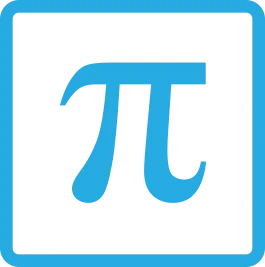If you’re planning on home schooling from the outset, you are probably wondering when ‘formal’ academics should begin. You might have questions like:
- What skills does my kid need to succeed in year 1 maths?
- How can I get my kid ‘up-to-speed’ if they don’t have some of these skills?
- How can I even know if my kid has the skills they need? Do I need to give them a test?
Skill 1: Counting to Ten
The single most important skill for success in maths, is counting. A solid foundation in counting really can make learning maths as easy as 1, 2, 3… Without it, maths can be a real struggle.
In my tutoring practice, I’ve seen first hand how true this is. One of my challenging cases was a girl with many developmental delays. She could count confidently to 10 and did brilliantly at adding and subtracting numbers up to a total of 10 but stray even one or two steps out of that range, and she floundered. It was a very long, patient process to expand her horizons beyond that. But at every step of the way, her maths skills grew inline with her counting ability.
What “counting to ten” means?
There is a world of difference between reciting numbers in order and counting. While many kids can rattle off the sequence 1, 2, 3… all the way to 100 before they start school, the ability to accurately count objects usually develops more slowly. The five year old kid who can “count to one hundred” will probably struggle to accurately count more than five objects.
When I say that a child needs to be able to count to ten, I mean that they should be able to count up to ten objects accurately.
A simple, playful test
If you’re into snacks…. Grab a handful of sultanas (chocolate chips, crackers, whatever takes your fancy) and separate small groups of them for your child to count. Let them know at the outset that they get to eat the biggest number they count accurately!
If you prefer to keep food for mealtimes… Grab a handful of small toys (like LEGO bricks) or found natural objects (like sea shells or pebbles) or, if you want a motivational option, small stickers let the kid keep as many as they can count accurately when you’re done.
Run through several examples to determine how far you child can count accurately. Mix them up and start with easy numbers first (3, 5, 2, 4) and then move to bigger numbers (7, 5, 9, 6, 8, 10). If your child has no problem counting up to ten objects, by all means keep going until you find their limit. Important! Stop before the activity stops being fun – watch carefully for even the slightest sign of boredom.
Skill 2: Recognising the numbers
The second skill that a child needs to be comfortable starting level B of Milestone Maths is the ability to recognise the written symbols for the numbers 1 to 10.
The quickest and easiest way to test this is to grab a set of number flashcards, pick out the numbers 1-10, shuffle ’em and flash them at your kid. If you have the cards, this will take seconds to implement. If you don’t have flashcards but are feeling crafty, grab a copy of the free gift at the bottom of this post to make your own.
If you don’t want to use flashcards, here are some low cost alternatives.
- The quickest and cheapest is to grab a whiteboard (or a scrap of paper) and a marker. Write down numbers at random and get your kid to tell you what they are.
- Print off one of these “say the number” posters and point to the numbers at random. Again, ask your kid to tell you what each one is.
- Go on a number treasure hunt. When out and about, ask your kid to find and point out numbers that you specify. So you might say, “Today we’re hunting for three’s.” This is a fun way to combine learning with keeping kids busy in the car.
What if my kid isn’t ready?
If your child is 6-7 years old and you want (or need) to start home schooling maths but they don’t have the above skills, you will need to work on activities that develop these skills for a little while before starting a formal curriculum. How? Start with the ideas above for testing as they also make great learning activities. You’ll also find some more suggestions in the free gift at the bottom of this post.
The parent introduction to Milestone Maths B1 has more ideas for teaching and reinforcing early counting and number concepts.
The final word
Most families begin Milestone Maths at Level B which corresponds to year 1 in the Australian Curriculum. But Milestone Maths is designed to be a mastery curriculum that keeps pace with your child. That means your child can (and should) work at the level that is right for them. We want your kids to progress as their skills develop, not just because they’ve had a birthday! Check out our advice on Placement in Milestone Maths.
Grab your free copy of Counting to 10 Flashcards below and get learning how to count! Do you have a creative way to use these cards? Let us know in the comments!
Free gift
Here’s a flashcard file with more suggestions to test and teach the foundational skill of counting to your young learner.


